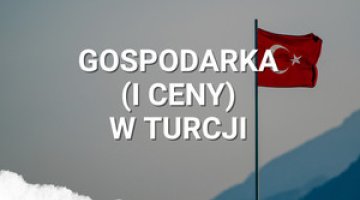Erdoğan’s visit to Rome – the Italian gateway to Europe
On 29 April, President Recep Tayyip Erdoğan travelled to Rome to attend the fourth Turkish-Italian intergovernmental summit. During the visit, a series of agreements were signed, covering areas such as the development of trade relations; cooperation in science, technology, innovation, industry and investment; collaboration in the space sector; and joint efforts regarding international transport corridors. Additionally, Baykar – Turkey’s key drone manufacturer – signed a protocol to enhance cooperation on the development of unmanned technology with Italy’s Leonardo, a leading European defence company. At the press conference, Italian Prime Minister Giorgia Meloni stated that the two countries had succeeded in establishing the strongest bilateral relationship in the Mediterranean region. She expressed appreciation for Ankara’s contribution to curbing irregular migration and highlighted the importance of Turkish-Italian defence cooperation for Europe. Meloni also announced a new trade volume target, aiming to raise it from $32 billion to $40 billion. Erdoğan, for his part, referred to Ankara’s commitment to the security of the European continent. He reaffirmed Turkey’s consistent support for Ukraine’s territorial integrity and sovereignty, and expressed hope that Italy – a country he described as ‘deeply understanding Turkey’s role in Europe’s stability and security’ – would continue to support Ankara’s efforts to join the EU.
Erdoğan’s visit confirms that Italy plays a pivotal role in Ankara’s European policy. Defence cooperation is particularly significant for Turkey. Ankara regards its multidimensional relationship with Italy as a model that could be replicated in relations with other European countries in order to overcome challenges in its cooperation with the EU.
Commentary
- Relations with Italy have become a priority within the European vector of Turkey’s foreign and security policy Their intensification has coincided with Giorgia Meloni’s tenure as Prime Minister – since 2023, the leaders of both countries have met regularly, and trade volume has increased by one-third over the past three years. Erdoğan’s visit to Rome confirms the importance Ankara attaches to this relationship. This is evidenced not only by the list of agreements signed, which extend cooperation into new areas, but also by the sizeable delegation accompanying the president. It included the Ministers of Foreign Affairs, National Defence, Industry and Technology, Trade, Family and Social Affairs, Youth and Sports, and Culture and Tourism, as well as the heads of intelligence and the Defence Industry Agency. This points to Turkey’s ambition to build multidimensional ties. Erdoğan also appears to be counting on Italy to advocate for closer Turkish-EU relations and to support Ankara’s inclusion in EU defence initiatives (see ‘The White Paper: the EU's new initiatives for European defence’).
- Close cooperation with Italy is intended to give Turkish companies broader access to the European defence market. The protocol signed by Baykar and Leonardo marks a new phase in their partnership. Earlier, in March this year, the two companies signed a memorandum of understanding to establish a joint venture. The company is to be based in Italy, with unmanned aerial vehicles to be produced in both countries. The partners aim to capitalise on the growing demand for unmanned technologies in Europe – a market projected to be valued at $100 billion over the next decade. However, statements from both firms suggest that the ultimate goal of their cooperation is the creation of a European defence consortium focused on developing unmanned systems. These would incorporate artificial intelligence and battle management tools designed to meet the requirements of multi-domain warfare. The importance of the Italian market for Turkey’s defence industry is further underscored by Baykar’s acquisition of the Italian firm Piaggio Aerospace in December 2024.
- The goal of Turkish foreign policy is to build similar relations with other EU member states that are open to expanding cooperation with Ankara and that prioritise security. From the Turkish perspective, this group includes Spain, Poland, the Baltic states, and the Nordic countries. On the one hand, the creation of such ‘islands of cooperation’ is intended to support the continued expansion and development of Turkey’s defence industry. On the other hand, it aims to establish a bloc of member states advocating for closer ties between the EU and Turkey. Given the domestic situation in the country (see ‘Turkey: Wave of protests following the arrest of Istanbul mayor’), it appears unlikely that this initiative will help Erdoğan achieve his objective of resuming accession negotiations. However, it could bring Ankara closer to implementing other key objectives in its cooperation with the EU – above all, modernising the customs union, visa liberalisation and greater inclusion in future EU defence projects.





